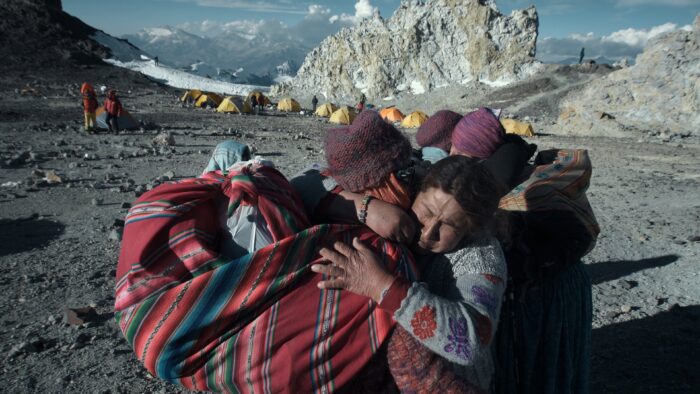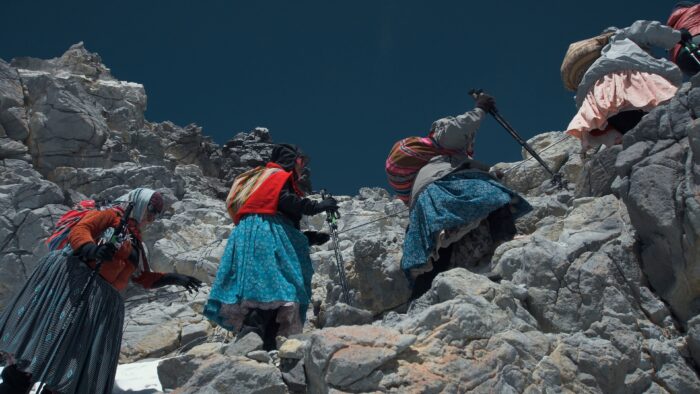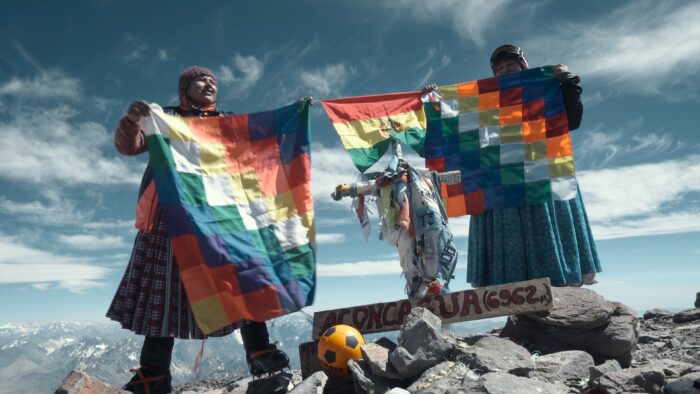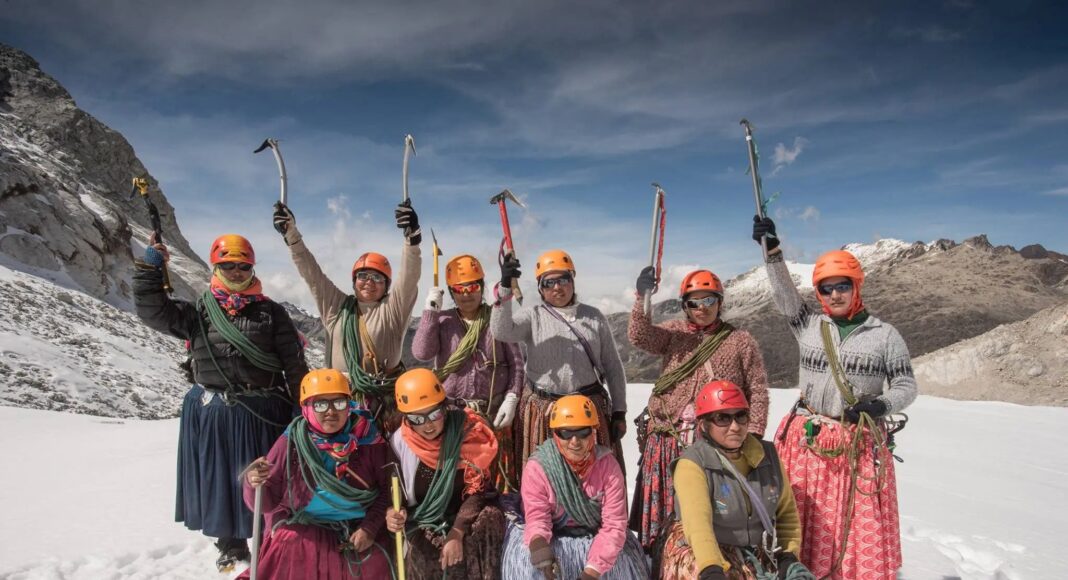In this captivating documentary film, Spanish directors Jaime Murciego and Pablo Iraburu present the story of five Bolivian Aymara women as they pursue their dream of climbing the highest mountain in the Americas, the Aconcagua.
The film opens with a birds-eye view of the city of El Alto, Bolivia. At about 4,150 metres above sea level this is the home of Lidia, Dora, Analia, Elena, and Cecilia. We are immersed in their daily life as they go to the market, cook, clean, work, and care for their families – always wearing the traditional colourful puffed skirts (cholas). Their homes are imbued with anticipatory energy as they each prepare for their trip to the mountain, in the Mendoza region of Argentina.
‘Do you know how many people die [there] every year?’ Celia asks the other women. Danger is tangible and fear is a natural reaction considering the magnitude of their upcoming climb. Scaling America’s highest mountain is no mean feat, even for the Cholita climbers, many of whom are former mountain chefs and porters and married to mountain guides.

After flying to Argentina and arriving at the bottom of the Aconcagua, we see stunning images of the otherworldly landscapes of Aconcagua. Here the climbers meet Paula and her husband, who are to be the guides throughout the ascent. ‘You’re going to climb the mountain in those skirts?’, an astonished Paula asks. ‘Of course,’ they answer earnestly. In wearing the pollera with crampons and other climbing gear, these women are proudly representing Aymara people, and particularly Aymara women.
There are comedic, sad, and endearing moments in the documentary. For example, in one scene the Cholitas laugh uncontrollably, wondering how they are going to smuggle coca leaves into Argentina (the leaves are used for their therapeutic and spiritual properties). ‘Just push them to the bottom of the sack,’ says Analia. In another scene, the women walk around the airport, intrigued, never having left their city before. As they browse the airport shops, international tourists and local Argentinians ask them for photos – even the flight attendants request a selfie with them – supposedly thanks to their stylish and traditional clothing, which is emphasized by the filmmakers to narrate both the Cholitas’ Aymara pride and their breaking with traditional roles.

An emotional scene shows Lidia, Dora, and Elena talking to other hikers about their unfulfilled dreams and hopes. They regret not having been able to study or work. Only Analia, a teacher, and Celia, a housekeeper, have managed to find work outside of their households. They describe the household as their prison, explaining how they have never pursued their own dreams since cleaning, cooking, and caring for their family has always been the priority, always at the service of others. Reaching the peak then becomes a spiritual peregrination to conquer their own personal boundaries, making the goal of climbing the mountain a powerful metaphor. ‘I feel free’ is a mantra they repeat throughout the film.
But this freedom doesn’t mean leaving Aymara culture behind. Spirituality is omnipresent in the picture. The Aymara cosmovision, an ancient polytheistic culture, sees deities as part of the natural world. Before every major stop of their journey, the Cholitas offer coca leaves and alcohol to the Gods: Pachamama, Earth Goddess and Achachila, Mountain God – female and male deities respectively, will safeguard them. A lot of people climb the Aconcagua ‘just to satisfy their ego,’ Paula tells the Cholitas, but for them this is a religious experience, too.

As they come closer to the summit, they start to become critically aware of the health risks the hike entails: exposure to lower temperatures and less oxygen could cause cerebral oedema, freezing, and several other conditions sparked by altitude sickness. Yet conquering the Aconcagua means conquering the summit of their personal development as Aymara women. ‘I left my fear in Aconcagua’, they say: not only has the Aconcagua reassured their strength and resilience but it has made them profoundly happy. This group of women, almost literally, touch the sky. A magical and inspiring documentary.
Cholitas is showing at WOW Wales One World Festival, with physical screenings at Aberystwyth Arts Centre, Friday 24 March 5.30pm BOOK NOW and at Taliesin Arts Centre Swansea, Wednesday 29 March 6.00pm BOOK NOW. It’s also showing online throughout March BOOK NOW.


